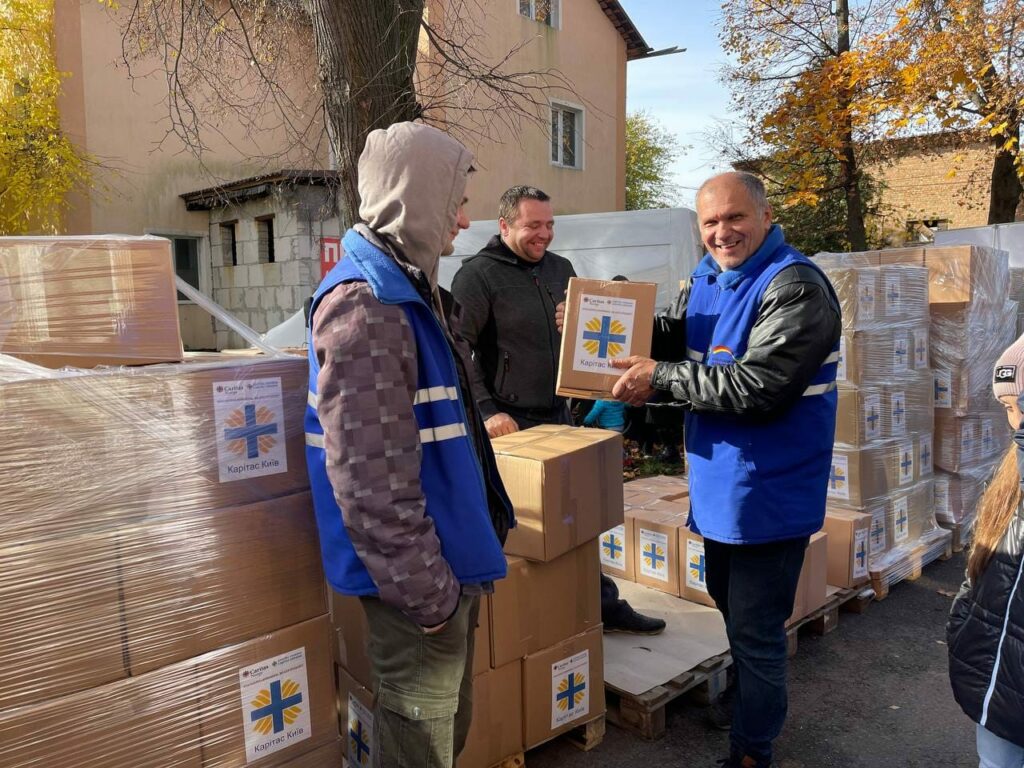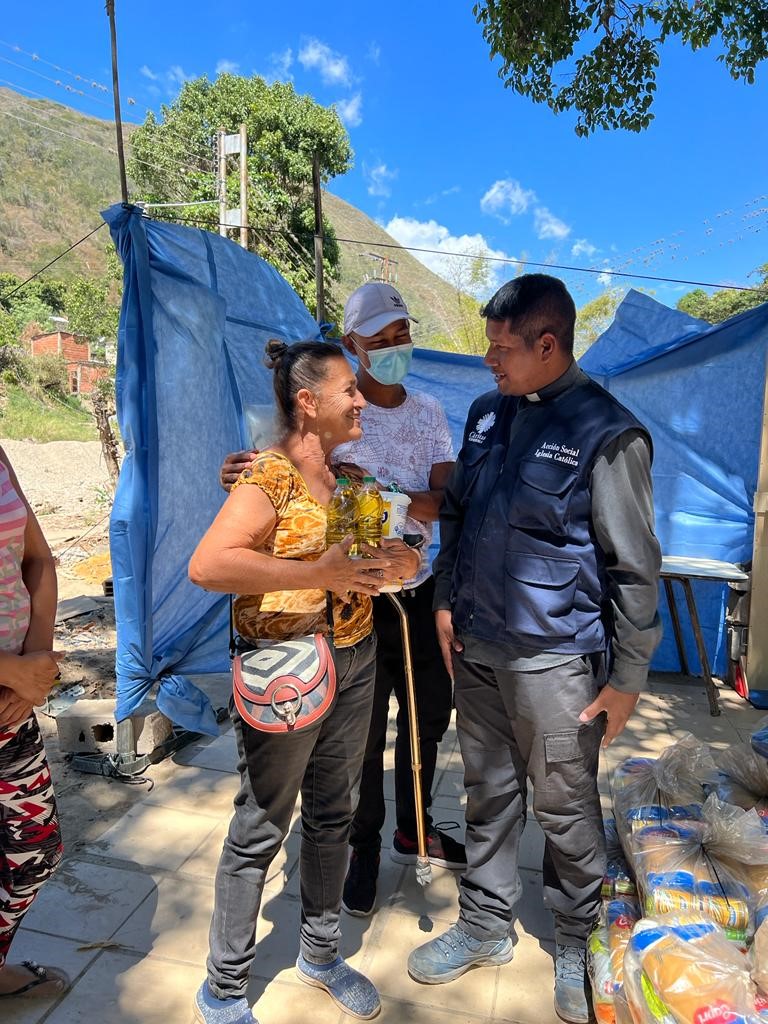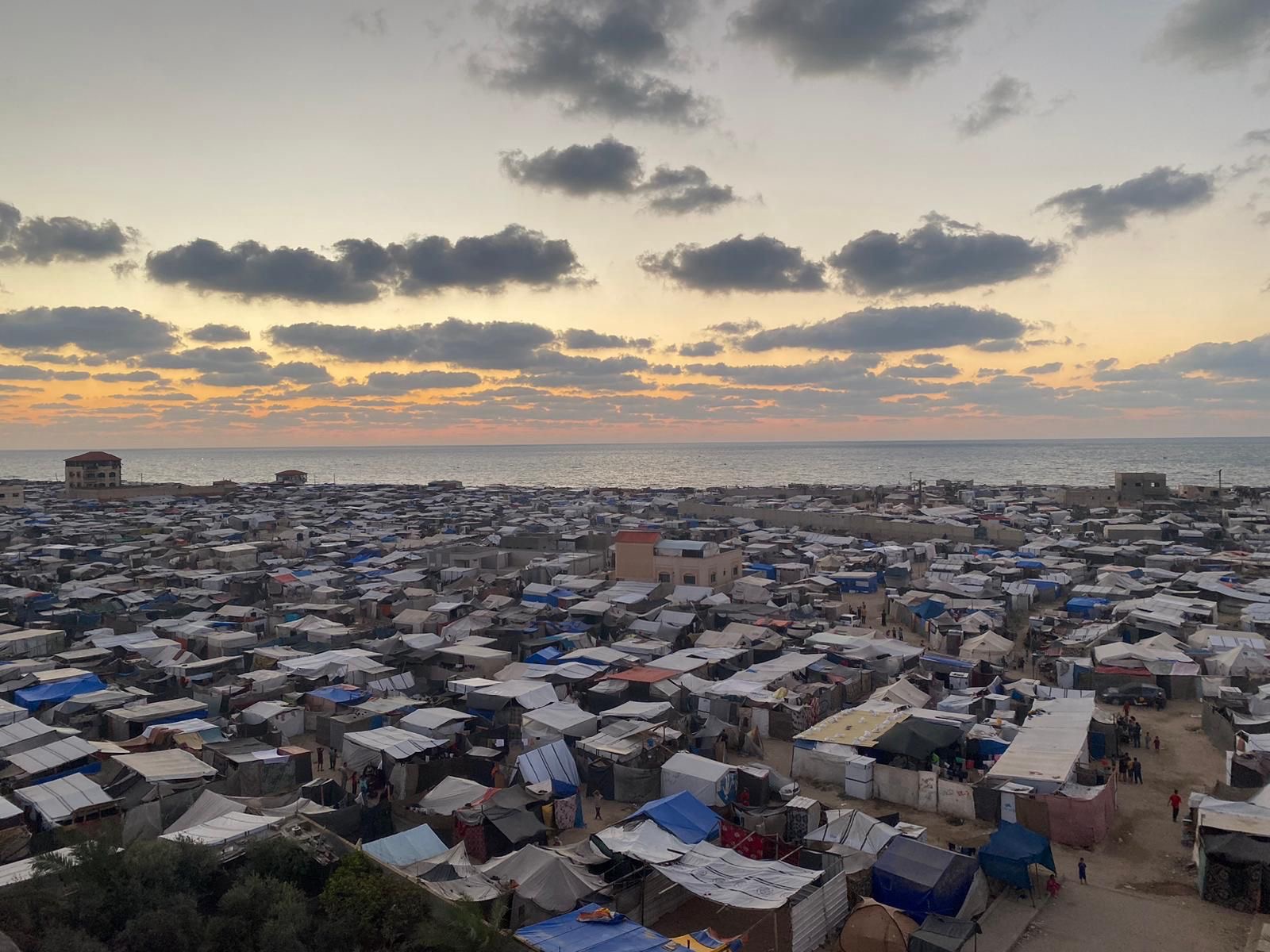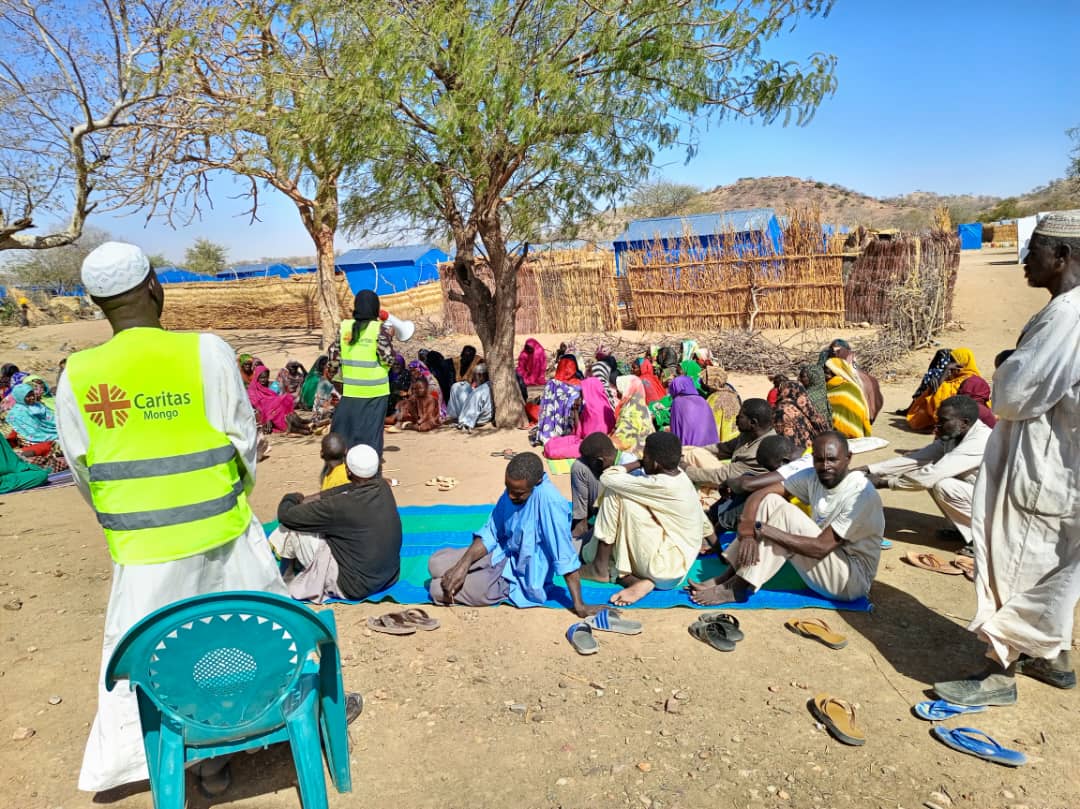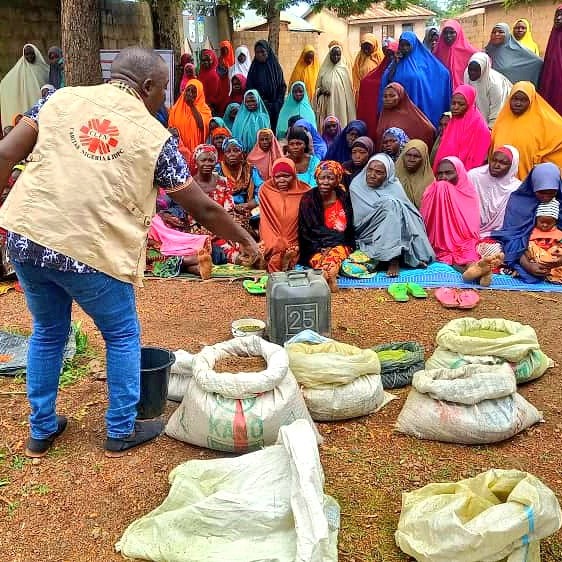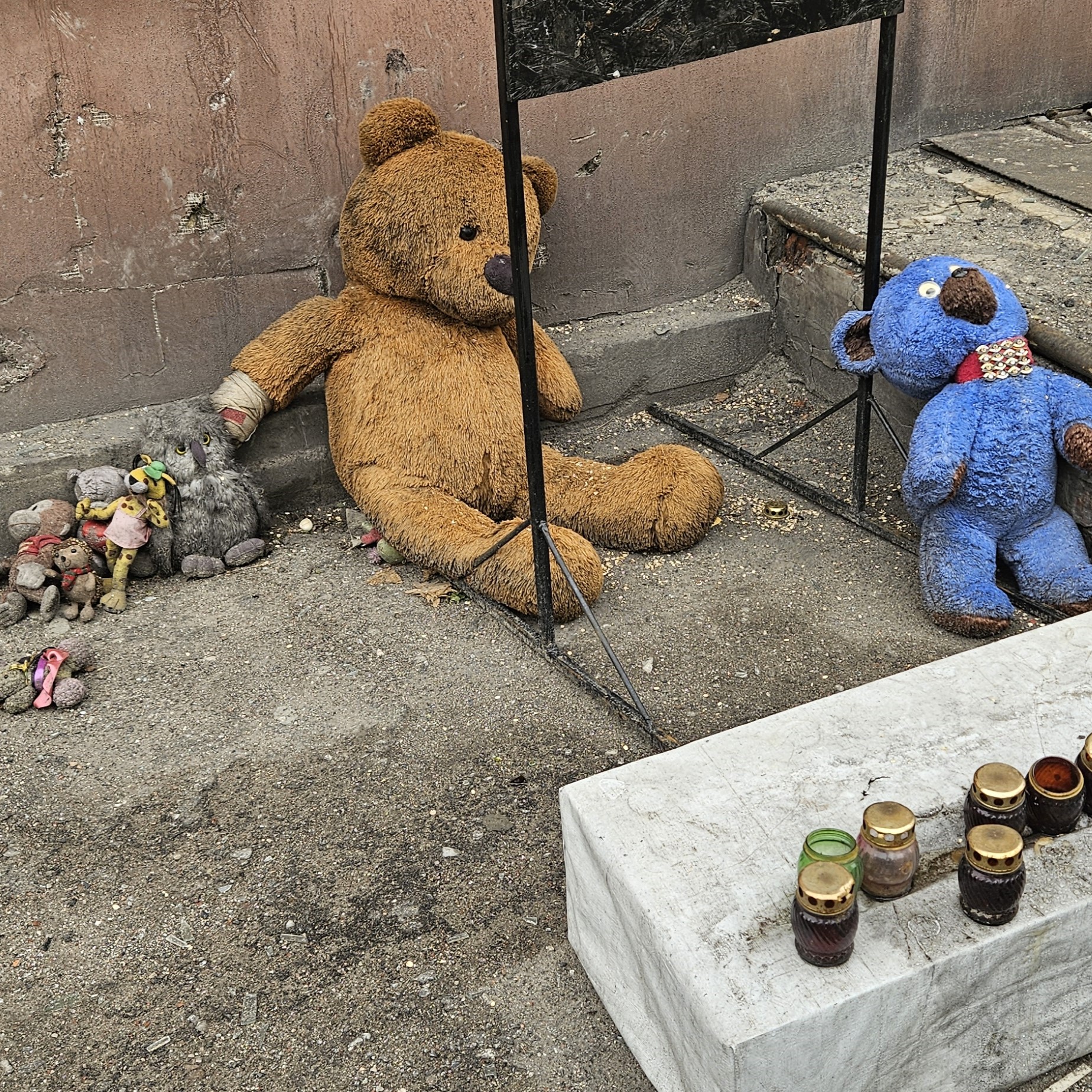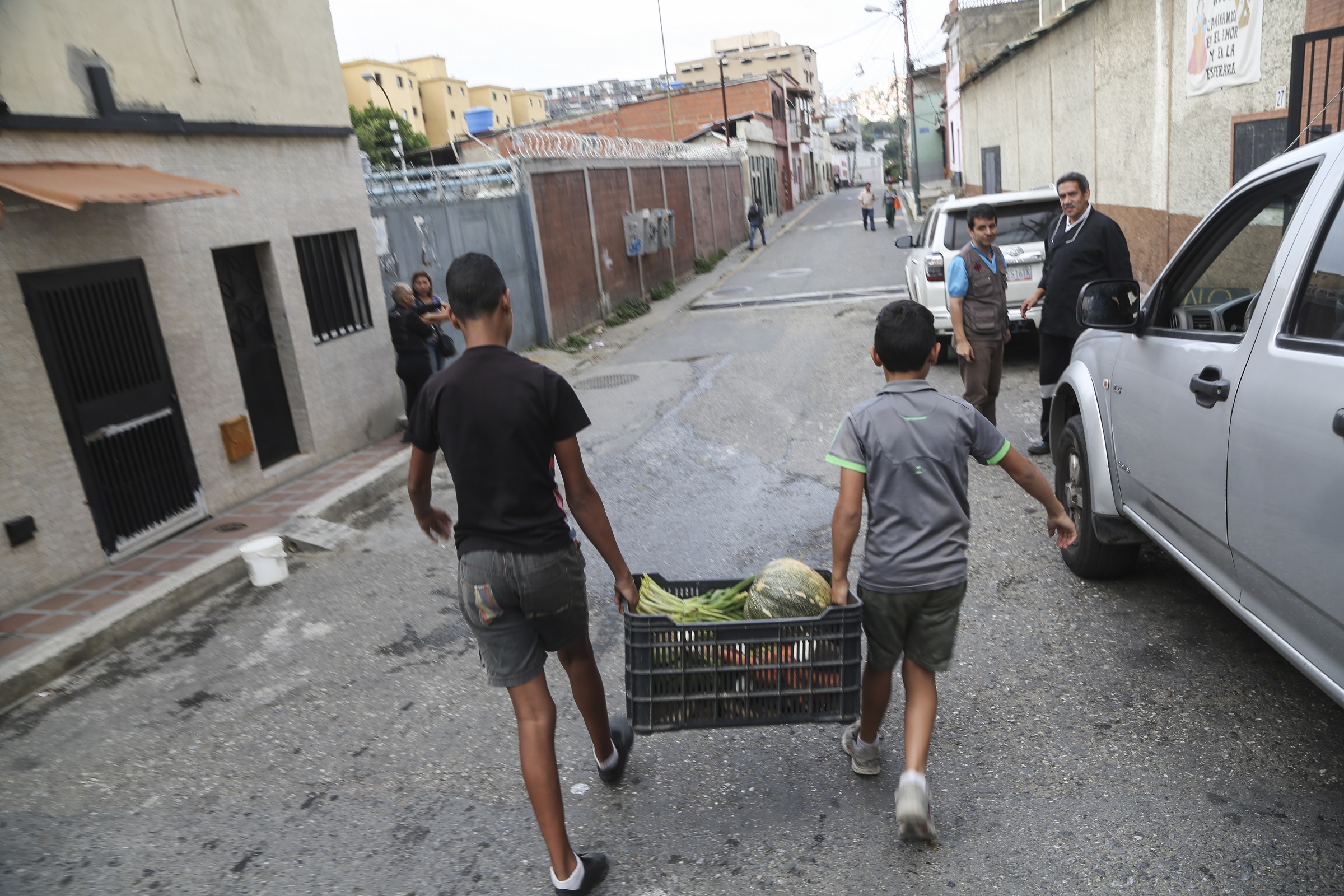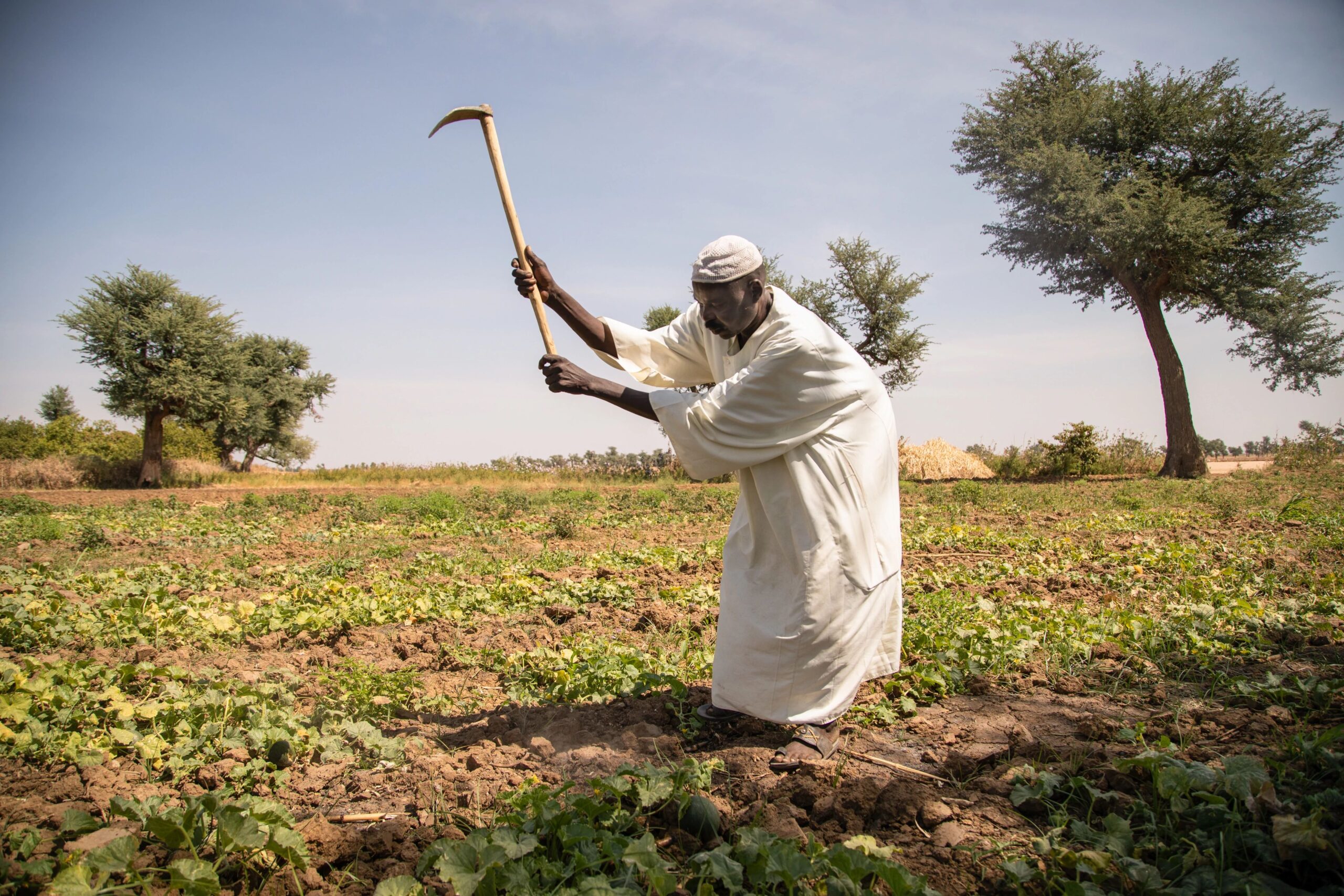emergency response
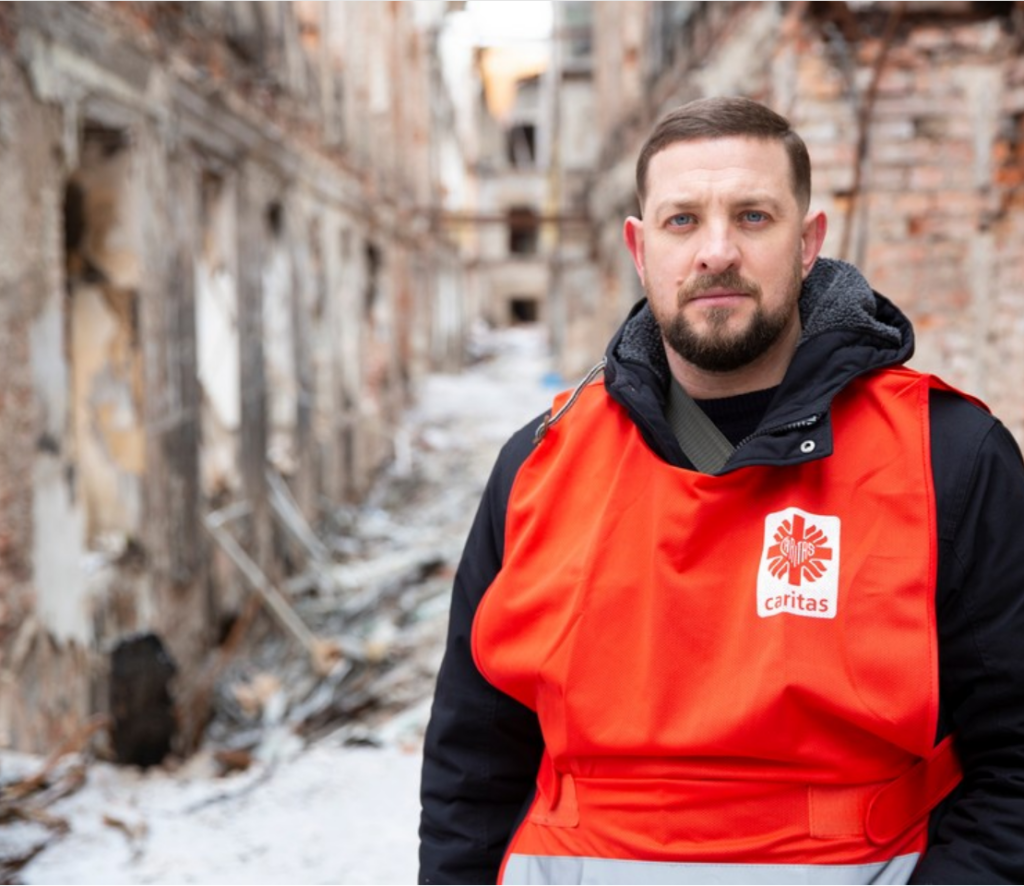
As one of the world's largest humanitarian networks, Caritas has aid workers in more than 200 countries. They work tirelessly to help people in need - as a result of conflicts, natural disasters or hunger crises.
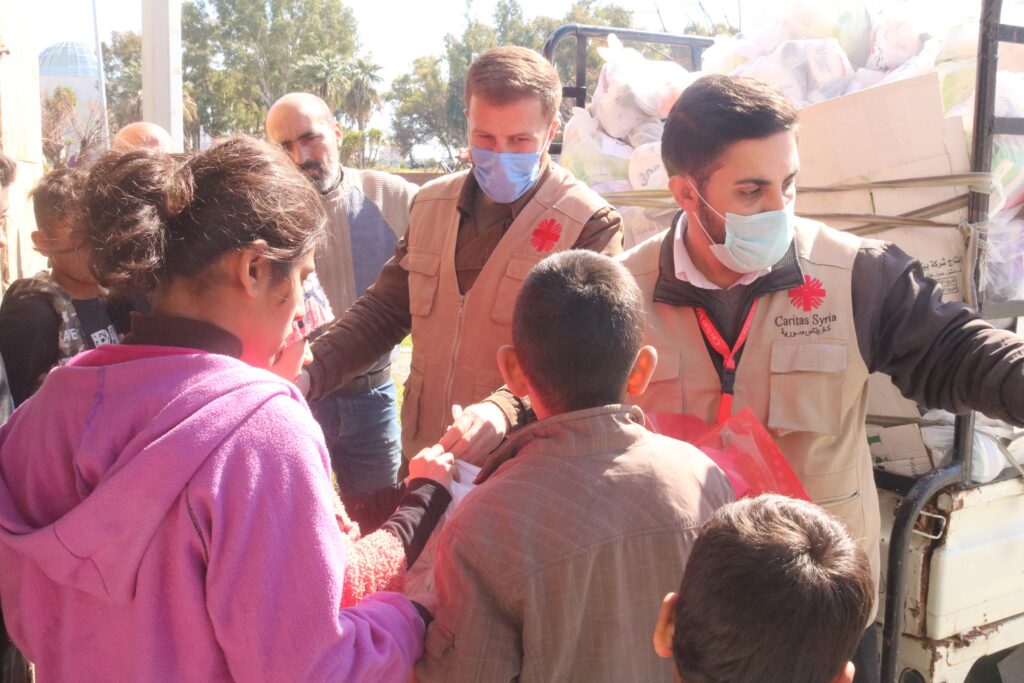
Long-term and sustainable solutions
According to the UN, around 300 million people will be in need of humanitarian aid and protection in 2024. This is a new record. The number of conflicts in the world is also increasing. At the same time, we know that the willingness and ability to help is diminishing. We need to rethink the way humanitarian work is carried out.
It has long been the case that the will to help in the form of money and other resources only comes on the table when the UN declares a humanitarian crisis. By then, it is often too late. Therefore, long-term and sustainable solutions are crucial in the work to prevent hunger and famine.
This is the cornerstone of all the work that Caritas does. When disasters and conflicts plunge vulnerable people into crises, we work closely with governments and civil society to respond quickly.
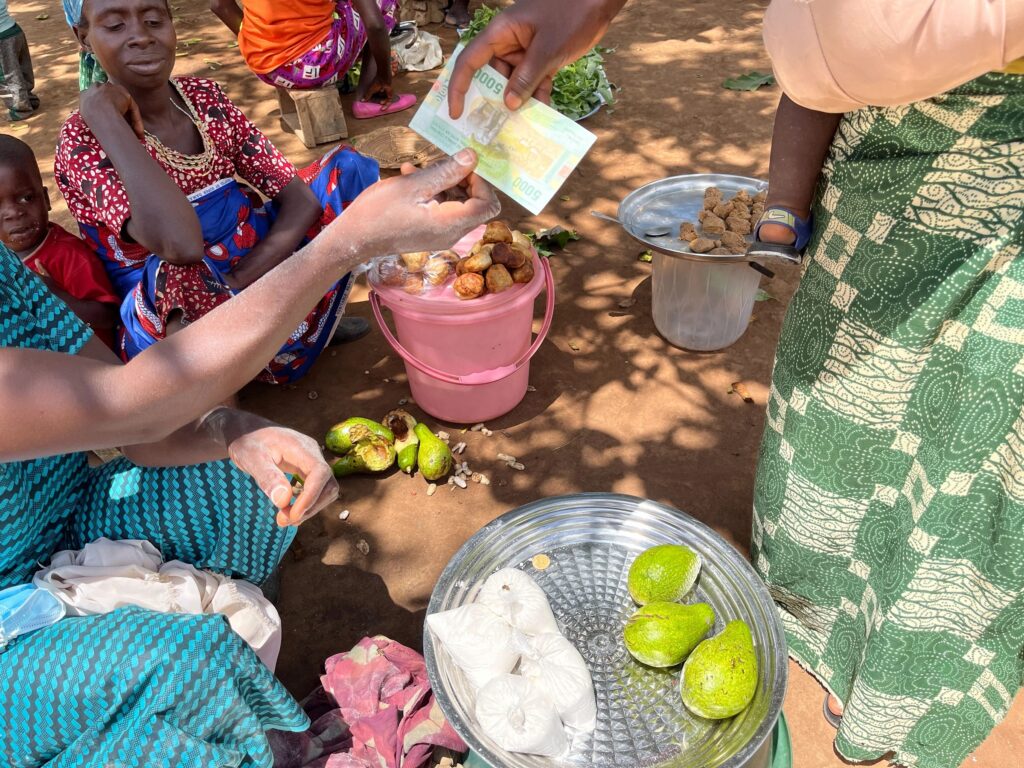
Local anchoring
Caritas is the Catholic Church's relief organization and the world's second largest network with 162 national offices globally. Caritas is therefore present where the needs are greatest and in all humanitarian crises. Global presence means that we can respond quickly when the needs are greatest through local partners.
Our local partners do not arrive when the needs or attention are great enough, but are present before, during and after a crisis situation arises. In a time of increasing humanitarian needs and large funding gaps, we know that working through local partners is not only the most effective way to reach people in need, but also the only sustainable approach for the future.
While the international Caritas network - of which we are a part - works humanitarian in over 200 countries and territories, we currently have relief projects in South Sudan, Nigeria, Niger, Uganda, Venezuela, Central African Republic, Syria, Palestine (Gaza), Ukraine, Poland and Moldova.
The work is coordinated in close collaboration with local partners and is funded by the Ministry of Foreign Affairs.
Our target groups include internally displaced persons, families who have returned to their homes and vulnerable families in need of humanitarian assistance. In addition, we work with malnourished children under the age of 5, pregnant and breastfeeding women.
In 2023, 294,069 people received emergency response through our projects.
